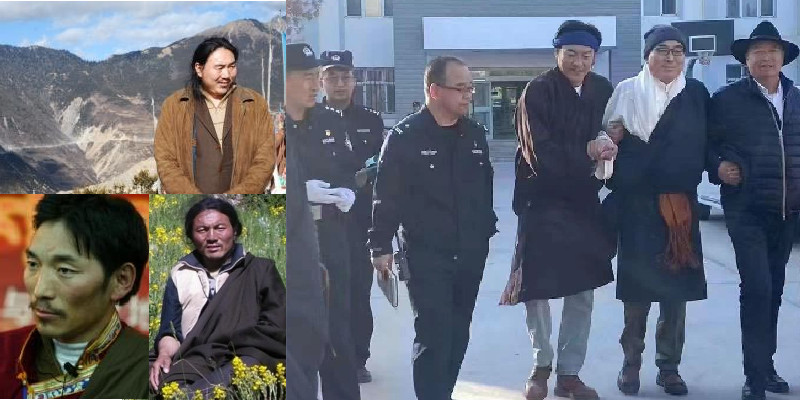Prominent Tibetan environmentalist and philanthropist, Karma Samdrup, has been released after serving a 15-year prison sentence. Detained on January 7, 2010, Karma was sentenced on June 24, 2010, by the Yanqi Hui Autonomous County People’s Court in Xinjiang, a region that has long been a site of tension for Tibetans. His sentence, which was initially set to run until November 19, 2024, after accounting for time already served, was completed earlier than expected.
According to Tibet Times, Karma’s release likely occurred on the day of the report’s publication, with sources indicating that he has arrived at his home. A photo taken after his release shows a frail yet resilient Karma, supported by two men as he walks—a powerful symbol of his perseverance through unimaginable hardship.
Unjust Imprisonment and Legal Challenges
At the time of his arrest, Karma Samdrup was a respected businessman, a renowned collector of Tibetan art, and the founder of the Three Rivers Environmental Protection Group, an award-winning environmental organization focused on wildlife conservation in Tibet. His efforts to combat poaching and promote sustainability, however, brought him into direct conflict with local authorities, particularly after his brothers, Rinchen Samdrup and Chime Namgyal, were detained in August 2009 for their own conservation work in the region.
Karma’s imprisonment followed unsuccessful attempts to secure the release of his brothers, who had been similarly targeted for their activism. In a move widely regarded as politically motivated, Karma was accused of excavating and robbing ancient tombs—a charge that had been previously cleared in 1998, making it a thinly veiled pretext for silencing him and his family’s environmental advocacy. Despite the lack of credible evidence, Karma was sentenced to 15 years in prison.
The case against him was marred by significant legal irregularities. His defense lawyers, including Chinese human rights advocate Pu Zhiqiang, denounced the trial as a “complete fake,” citing coerced confessions, the fabrication of evidence, and the refusal of the court to consider crucial exonerating documents. Despite these violations, the court proceeded with the sentencing, reflecting a broader pattern of using the Chinese legal system to target individuals whose efforts conflict with state interests, especially in Tibet.
A Long Road to Freedom
Karma’s release marks the end of a long and painful chapter for him and his family, who have endured years of legal battles, torturous conditions, and forced separation. Throughout his detention, Karma and his brothers were subjected to severe torture, and their mother was reportedly beaten unconscious by armed police during their arrests. Despite the suffering, Karma’s commitment to environmental protection and Tibetan culture has remained unwavering. His work, particularly in the Yangtze River watershed, had earned him respect not only among local Tibetans but also among international environmentalists.
The Samdrup brothers’ detention has been part of a wider crackdown on Tibetan activism, with the Chinese government targeting those who are seen as influential within their communities or who challenge state policies, especially regarding Tibetan culture and the environment. Karma’s release, while a long-awaited victory for his family, serves as a reminder of the ongoing repression in Tibet, where environmental and cultural advocacy is often met with severe consequences.
As Karma returns to his home, his story stands as a testament to the resilience of the Tibetan people in the face of political persecution. His dedication to environmentalism and the preservation of Tibetan culture continues to inspire, even after years of unjust imprisonment.
Photo: Top left, Karma Samdup before imprisonment, Samdup right after his release. Bottom left, Rinchen Samdrup and Chime Namgyal.

